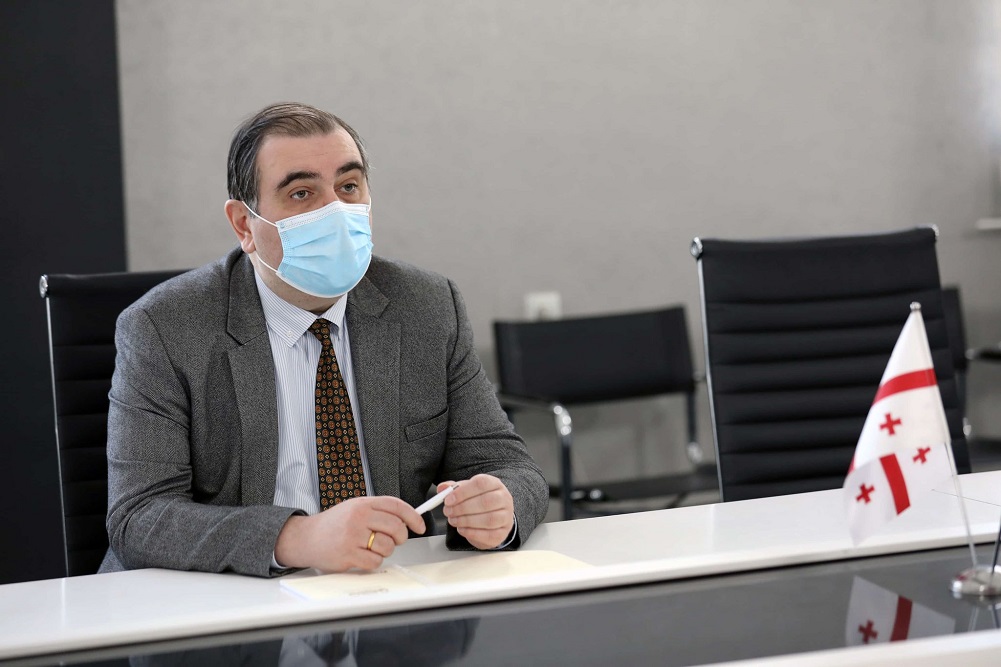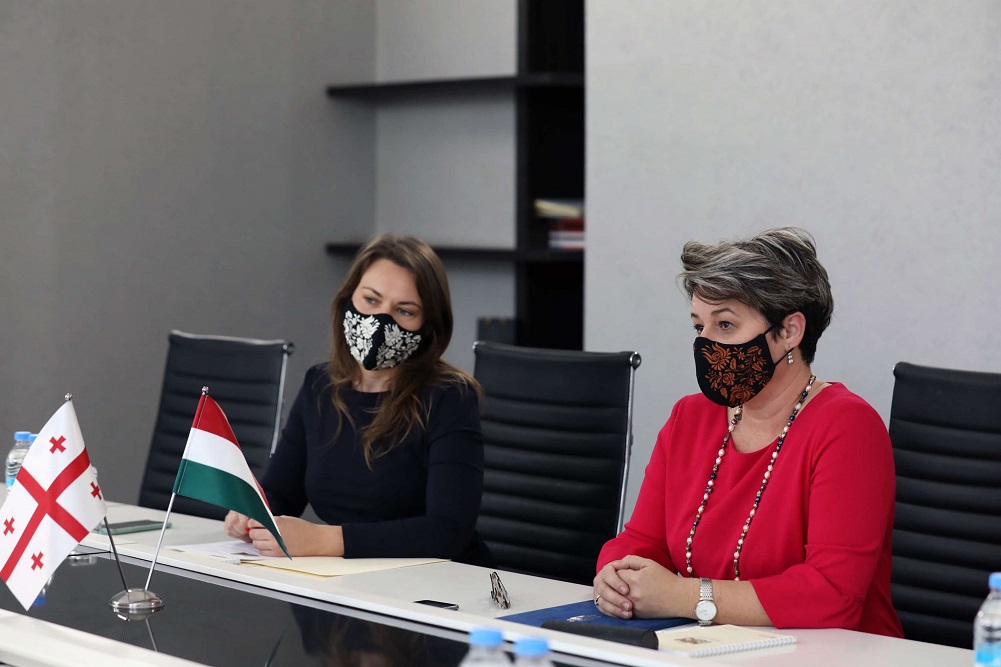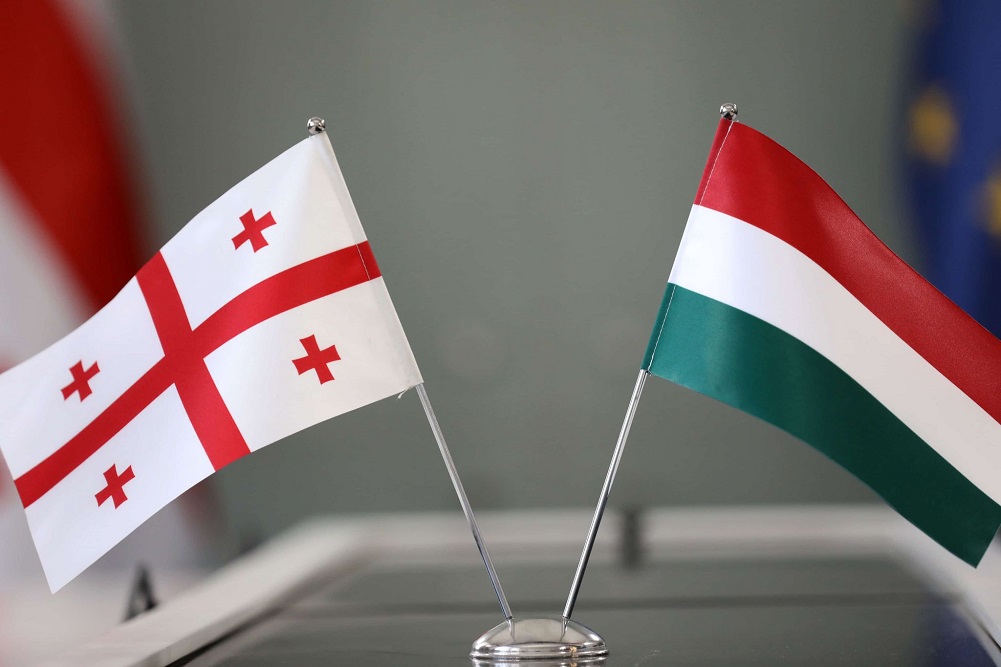The Minister of Education, Science, Culture and Sport of Georgia, Mikheil Chkhenkel held a meeting with the Ambassador of Hungary to Georgia, Victoria Horvat and discussed the possibilities of deepening cooperation in the fields of higher education, science, and culture.
Mikheil Chkhenkeli thanked the Ambassador for several important and fruitful projects in the field of education, including the successful exchange scholarship program between Georgia and Hungary - "Stipendium Hungaricum", which allows Georgian youth to study in Hungarian higher education institutions in various fields. The Hungarian ambassador noted that the project has been further expanded.
During the meeting, the parties shared their countries' experience in ensuring a continuous education process in light of Covid-19 pandemic. The Minister briefed Victoria Horvath on the Action Plan of the Coordination Council and noted that from February 1 onwards, the teaching process will continue in classrooms throughout the country, except for Tbilisi, Kutaisi, and Rustavi. As for the schools of Tbilisi, Kutaisi, and Rustavi, based on the recommendation of the Ministry of Health, the epidemiological situation will be assessed again and if the 7-day infection rate drops to 4%, the government will consider alleviating the restrictions.
Mikheil Chkhenkeli and Victoria Horvat discussed the current mega-project in the education system - ways to develop and expand cooperation at Kutaisi International University.
Additionally, the Minister highlighted, that particular importance is given to the scientific-research aspect at Kutaisi International University. The project is fully funded and implemented by the International Charity Fund "Cartu". The Hadron Therapy Center will be established on the university premises, that will house two cyclotron-type accelerators, which are currently being manufactured by the world's leading manufacturer of cancer proton therapy equipment - IBA. One of the cyclotrons will be used to treat tumors with ultra-modern methods, whereas another one will be fully utilized for scientific research process in nuclear experimental physics, radiation biophysics and chemistry. Also, a proton therapy clinic will be founded, where oncological diseases will be treated with modern methods. It is planned that Georgia will join the international network of proton therapy centers. Ambassador - Victoria Horvat, for her part, expressed her willingness to collaborate with the Hadron Therapy Center in this regard, including the involvement of young scientist in scientific research.
Furthermore, the parties discussed the expansion of cooperation in the field of agriculture. The Minister noted that the development of a vocational college is currently underway at the Telavi State University, where the introduction and implementation of various agrarian programs is planned. The involvement of the Hungarian side in this process will help to develop vocational programs and fully meet the needs of the local market.
The sides also discussed the prospects of cultural cooperation, including the importance of creating a "Mikhai Zichy Cultural Route" to deepen Georgian-Hungarian relations.
 |
 |
 |






















